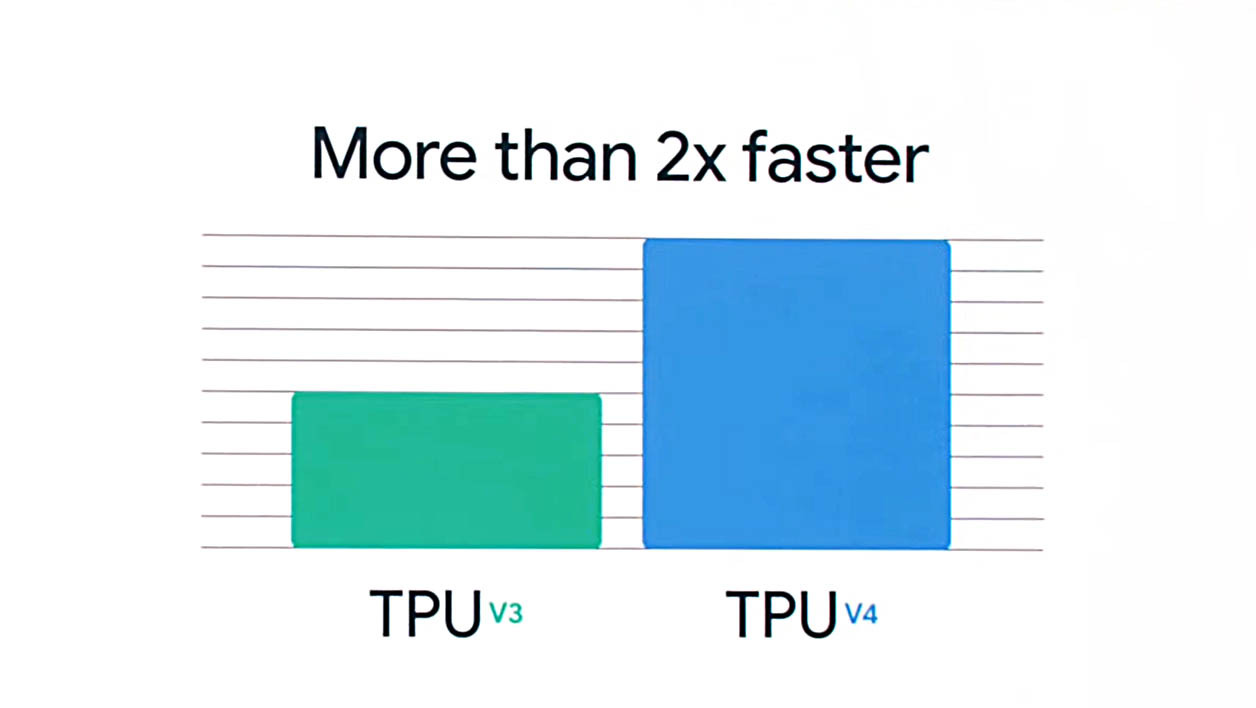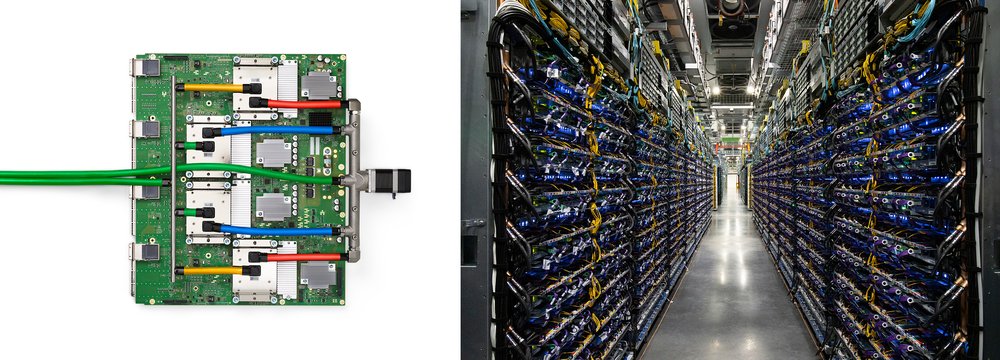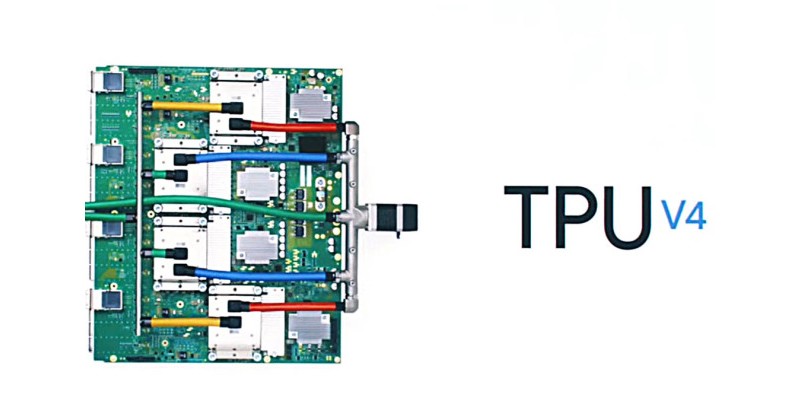As part of the Google I/O 2021, many new features are announced by the Mountain View firm. One of them concerns the development of its new computing processor dedicated to artificial intelligence. This is the fourth generation of the Tensor Processing Unit (TPU) chip, named TPUv4 for the occasion.
A new generation of TPU processor
Google's annual conference has always been the occasion for the group to present its new generations of TPU. In 2016, the firm announced the development of a first generation of processors dedicated to AI. In 2018, the second generation (TPUv2) was hinted at and the following year, a third (TPUv3) was under development. This year, the fourth generation (TPUv4) was announced.The TPUv4 chip will be etched in 12nm and will be equipped with 32GB of high speed memory (HBM). Compared to its third-generation sibling, the TPUv4 is said to have twice the performance. 
We don't have any more technical details on these chips at the moment. As with its predecessors, the TPUv4 computing chip will be dedicated to artificial intelligence. In addition to using these systems for its own AI applications, such as search suggestions, language translation or their voice assistant, Google is renting a dedicated TPU infrastructure to Google Cloud customers.
During their announcement, Google claimed that:
"This system is the fastest we've ever deployed and a historic milestone for the firm."
Exaflopian pods to optimize computing performance
One of the particularities of the fourth generation of TPU lies in its organization in "pods". There are 4,096 units on each chip and each pod develops one exaflop of computing power. To give an order of magnitude, one exaflop corresponds to1018 flops, or one billion billion floating point operations per second. According to the Mountain View firm:
According to the Mountain View firm:
"A pod can provide more than one exaflop, which is equivalent to the computing power of 10 million laptops combined. Previously, to access an exaflop, experts had to create a custom supercomputer. Soon, we'll have dozens of TPUv4 chips in our data centers, many of which will run on 90 percent carbon-neutral power."
[caption id="" align="alignnone" width="1000"] Left: a chip tray used for TPUv4, right: Google's Oklahoma data center[/caption]
Left: a chip tray used for TPUv4, right: Google's Oklahoma data center[/caption]
Google has not yet announced the cost of using these exafloptic pods, but promises that they will be available to its cloud customers sometime in 2021.
Translated from Google I/O : annonce de la quatrième génération de TPU et lancement des pods exaflopiques


